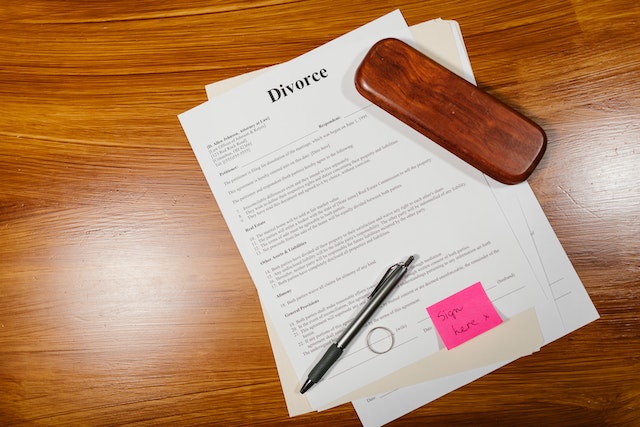Though there is a certain stigma surrounding prenuptial agreements, creating such an agreement is not a precursor to divorce. A premarital agreement can help prepare a couple for a variety of “worst-case scenarios,” including the death or disability of a spouse or divorce. Although you should absolutely create a prenup when one or both spouses enter the marriage with a large amount of property or wealth, these agreements are not just for the super-wealthy–all couples can benefit from them. If you and your future spouse would like to create a prenuptial agreement, please don’t hesitate to contact the knowledgeable Morris County family lawyers here at Leslie Law Firm today.
What Can I Include in a Prenuptial Agreement?
A prenuptial agreement allows couples to establish clear financial expectations before marriage, helping to prevent disputes in the future. In New Jersey, a prenup can cover a wide range of financial and property-related matters, including:
- Division of Assets and Debts: A prenup can outline how property, investments, and debts will be divided in the event of a divorce or legal separation, protecting individual assets acquired before marriage.
- Spousal Support (Alimony): Couples can agree in advance on whether alimony will be paid and, if so, the amount and duration. However, this must be fair at the time of enforcement to remain valid.
- Inheritance and Estate Rights: A prenup can help protect family inheritances, ensuring certain assets remain with children from a previous marriage or within a family lineage.
- Business Interests: If one or both spouses own a business, a prenup can safeguard ownership and prevent disputes over business assets in the event of a divorce.
- Rights to Certain Property: Couples can specify which assets will remain separate property and which will be considered marital property, avoiding future confusion over ownership.
- Debt Protection: A prenup can ensure that one spouse is not held responsible for the other’s pre-existing debts, such as student loans, credit cards, or business liabilities.
While a prenup can address many financial concerns, it cannot govern personal aspects of the marriage or restrict certain legal rights, as discussed in the next section.
What Can’t Be Included in a Prenup?
While prenuptial agreements provide significant financial protection, there are limitations on what they can include. Under New Jersey law, a prenup cannot:
- Decide Child Custody or Child Support: Courts determine child custody and support based on the child’s best interests at the time of divorce, not based on agreements made before marriage. Any attempt to include such provisions would be unenforceable.
- Encourage Divorce: A prenup cannot contain provisions that incentivize divorce, such as financial rewards for filing or clauses penalizing a spouse for initiating proceedings.
- Include Unfair or Unconscionable Terms: If a prenup is grossly unfair or would leave one spouse in severe financial distress, the court may refuse to enforce it.
- Dictate Personal or Lifestyle Clauses: Provisions related to household responsibilities, weight maintenance, or other personal behavior are not legally binding and generally not enforceable.
- Modify or Waive Certain Legal Rights: A prenup cannot waive a spouse’s right to social security benefits, health insurance benefits, or certain retirement rights governed by federal law.
How Do I Know if My Prenup is Valid?
A prenuptial agreement must meet specific legal requirements to be considered valid and enforceable in New Jersey. A valid prenup must:
- Be in Writing and Signed Voluntarily: Both parties must willingly sign the agreement without coercion, undue pressure, or threats.
- Include Full Financial Disclosure: Each party must fully disclose their income, assets, and debts before signing. Failure to provide complete financial information can lead to the agreement being invalidated.
- Be Fair and Reasonable: A prenup that is grossly one-sided or leaves one spouse in financial hardship may be challenged in court.
- Be Executed with Legal Counsel (or a Knowing Waiver of Counsel): Each party should have independent legal representation to ensure they fully understand the terms of the agreement. If a party waives their right to an attorney, this must be done knowingly and in writing.
- Be Signed Well in Advance of the Wedding: A prenup signed too close to the wedding date may be considered invalid due to potential pressure or lack of sufficient time for review.
- Comply with New Jersey’s Uniform Premarital and Pre-Civil Union Agreement Act (UPAA): New Jersey law governs prenups, and agreements must align with state legal standards to be enforceable.
If a prenup does not meet these requirements, a court may refuse to enforce it, either partially or in its entirety.
Contact Our NJ Prenuptial Agreement Lawyers
Importantly, a prenup should be prepared in advance of your wedding, not immediately before, so contact our legal team sooner, rather than later. Leslie Law Firm is here to help you and your future spouse attain peace of mind so you can focus on what matters most–your marriage. Contact our prenuptial agreement lawyers today so we can get started.



